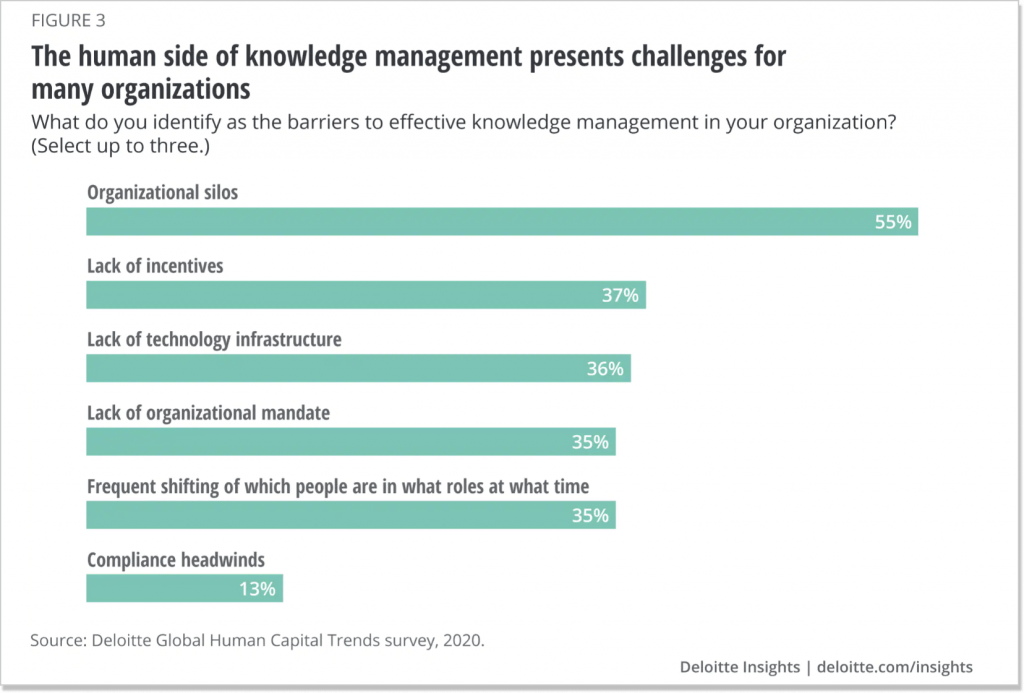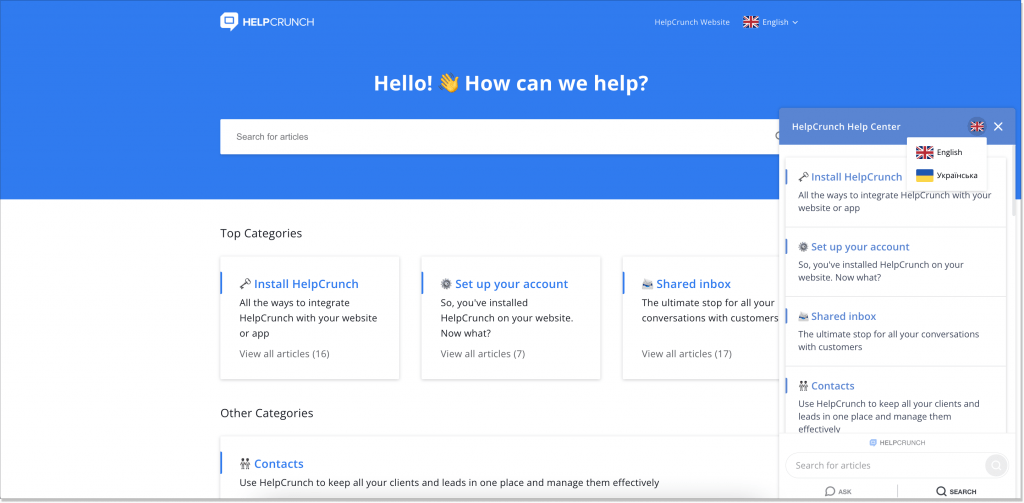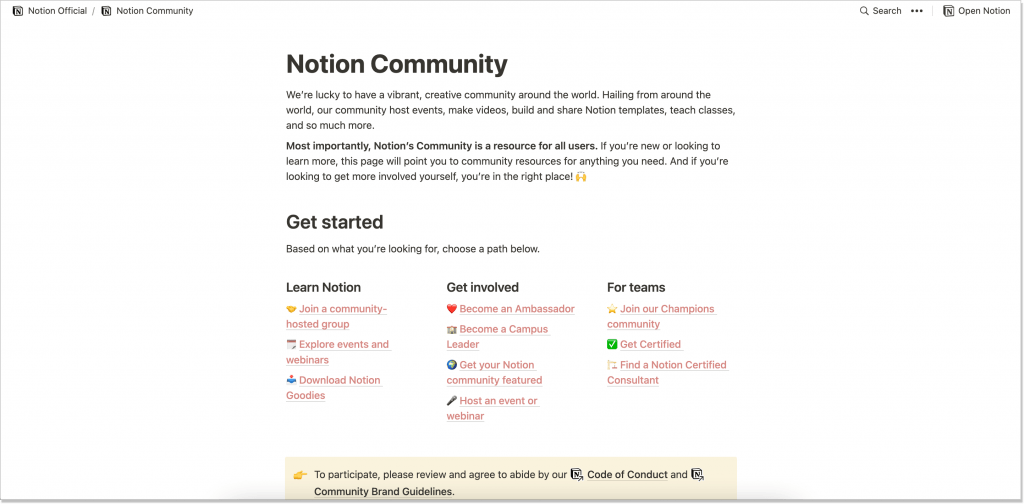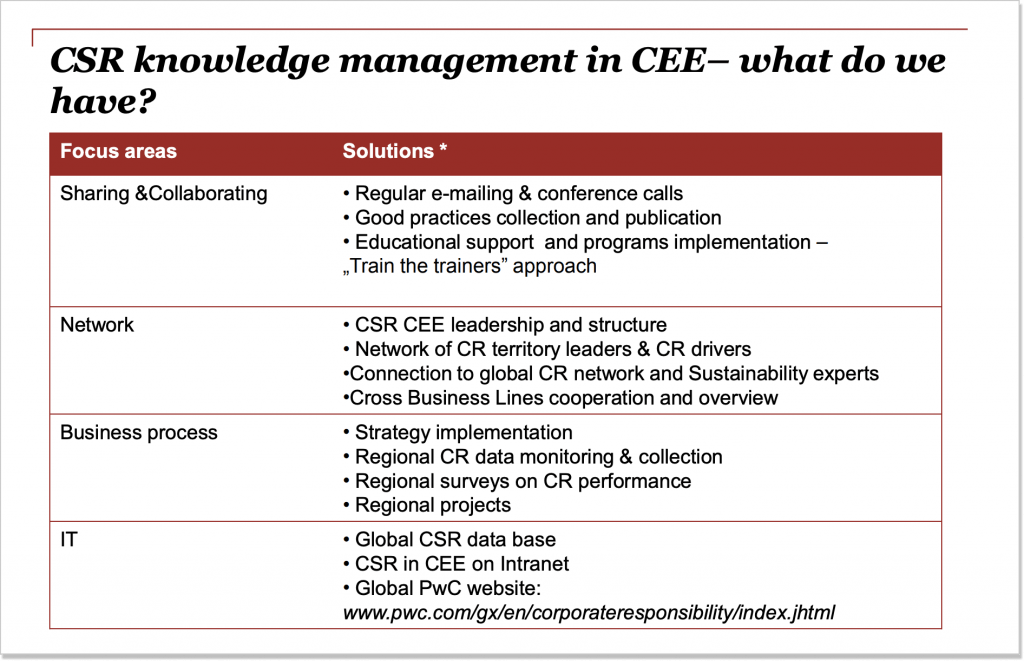8 Knowledge Management Benefits That Tip The Scale for Businesses
The benefits of knowledge management might seem obvious, but we dug a bit deeper. Here are 8 perfect advantages that your business will enjoy under one condition, though: if your knowledge management plan is solid enough.
Written by Olesia Melnichenko

Let me flash a little discovery of mine. Did you know that the human brain can process 11 billion bits of information every second? That’s quite impressive! From here, I would like to simulate a situation.
Imagine a new hire who has just crossed the company’s threshold and needs to onboard. But here’s one teeny-weeny side note: you need a common place where all the organization-specific data is stored. Otherwise, the newcomer has to piece the info together in their head in order to go through the learning process. Blimey! 😢
Such a hypothetical scenario indicates only one thing: the company hasn’t got the slightest idea of how to leverage its experiences, let alone the benefits of knowledge management for a business. Should you be interested (and I know you are!), check out this post. We’re here to shed light on this.
Knowledge management: the definition explained
As you have probably guessed, knowledge management implies how information circulates across a company. If done right, it can help you share, understand, process, and team people up based on the data they look for. In other words, the central pillar of this notion is providing structured access to knowledge, no matter the business’ size.
What is the primary goal? It’s averting the waste of knowledge, improving the overall company’s expertise, and boosting its bottom line. And, sure thing, it all can’t do without a proper strategy. Take a peek at this mini to-do plan before we dig deeper into the question:
- Adopt a knowledge management system that allows you to keep the business’s information as structured as possible (a help center, a case study page, and a wiki, to name a few);
- Separate your knowledge management system from your project management tools so they’re no longer being used for reference material;
- Walk your team through this system so that they won’t end up in a hole when assisting clients (and helping their mates);
- Update and reinforce this library in order to be on the high horse.
What impact does knowledge management have on businesses? Deloitte carried out a survey in 2020 which revealed striking insights about it and explained its human side. Thus, the respondents were offered to identify the barriers to effective knowledge management, and more than half of them (55%) claimed organizational silos as the main one. What’s also thrilling is the lack of technology infrastructure and organizational mandate pulled up (36% and 35% respectively).

We arrive at a broader issue at this point: are there any advantages of knowledge management? Spoiler alert: they’re massive (and it’s not just for the sake of the article title! 😅).
8 benefits of knowledge management that might tip the scale for your business
1. Immediate access to information
Remember the hypothetical situation I described at the beginning of this article? Well, the same goes for your clients. If they don’t see a well-organized pool of info once on your website, you can wave them goodbye. For that not to come true, make sure your knowledge management system is in plain view and easily accessible.
Let’s take a knowledge base as an example. The rule of thumb is that it’s presented as a standalone website page or an in-app section, and the link to it can be found either at the header or the footer of the page.
However, no matter its location, your customers (and employees) should be able to find it as quickly as possible. The knowledge base from Grammarly hits the mark. You can access it from the website’s footer, which makes all the guesswork taken out:

2. Advanced customer service and support
Customer service and support are no longer a given. It should be constantly trained and polished to achieve ultimate success. Modern tech knows a plethora of ways how this can be reached. And it’s totally NOT a one-way street. Here is the example powered by HelpCrunch (yeah, what else is new?):
- For customers: they don’t have to wait for a human service agent when casting around some answers. Thanks to the knowledge base, which is seamlessly integrated into the chat widget, they can check out the articles on the fly.
- For agents: when you chat with a user and feel like they need an in-depth context – send them an article right from a shared inbox without jumping between the tabs. Everything is at your fingertips. The advantages of a knowledge management system have never been cooler.

This was only the tip of the HelpCrunch knowledge base abilities. To unleash its full potential, you just sign up for a 2-week free trial – the massive perks won’t be long in coming! 😏
3. Smoother customer and employee experience
Think of your current tools and the whole approach for managing and distributing your company’s knowledge. But before jumping to any conclusions, ask yourself:
- Do I provide my team with enough resources so that they can share the data with customers?
- Is my tool feature-packed enough to perform these kinds of tasks?
- When my customers reach out to me, do I tell them to wait endlessly, or do they receive help/instructions/workarounds immediately?
My point is that when you arm the team with proper “weapons”, the chances are clientele will take a hit as well (in a good way). According to this logic, when a user, for instance, comes with a complex issue via email, a customer service rep can easily transfer them to another, more qualified department (if need be).
From a much broader perspective, the staff can improve its decision-making process, too. Everything happens thanks to a helicopter view of the knowledge and the fresh insights it suggests.
4. Decreased costs
How many gadgets/tools/devices do you leverage to spread knowledge? I bet this number is quite large. One of the key benefits of knowledge management is that you can significantly cut it by making several changes:
- Reduce the number of tools for storing information (and use an all-in-1 tool, for instance, to not spread yourself too thin);
- Avoid errors caused by lack of knowledge;
- Eliminate duplicated efforts across the working process.
As a friendly piece of advice from me: consider investing in your knowledge management resource once and then reap the benefits. For instance, get a universal help center where you can keep wikis, guides, videos, explanatory materials, white papers, and whatnot.
Besides, try to build a community for your customers where they can share their experiences, easing the burden of troubleshooting for your crew. When I say “community”, I can’t but introduce Notion. They developed a vibrant, crowded space for their audiences from around the world for self-service, better context, and knowledge swap:

5. Boosted customer sentiment
Another point in the list of business benefits of knowledge management lies in its emotional outlook. Let me elaborate on this one.
When I was searching for a birthday present for my friend, I came across several shops with a lookalike assortment. The choice wasn’t obvious, so I decided to contact the brands (let’s call them A and B) and ask them for details: whether these items were in-stock, what the shipping policies were, and how they stood out from their competitors.
To my surprise, shop A answered my request faster and in much greater detail, recommended their additional resource where the product was shown in all its glory + offered their gift wrapping service. Their knowledge was abundant and backed up by extra goodies. Shop B failed big time.
Which of the shops left a more positive impression on me? Sure thing, the first one. As a result, I made a purchase there and shared my review online. The other one got rather negative feedback, followed by my frustration. The bottom line here: always strive to combine your company knowledge with a personal approach. This way, you can reach the rewarding customer sentiment and beneficial word of mouth.
6. Better internal collaboration and engagement
Imagine you want to learn how to make a croquembouche 🤤 Which option would you choose: to read a step-by-step recipe in a cookbook, or meet a seasoned French chef who would walk you through the process and share their professional knowledge?
The researchers have found that practicing a skill is way more effective than reading theoretical guides. So while having explanatory material at your disposal won’t hurt, knowledge sharing between colleagues is much more beneficial. Anyway, your software should be based on a people-first strategy, just as a fallback – private notes for teammates, the ability to loop them in when a customer issue seems like a deadlock, etc.
As a business owner or a department leader, your first priority should be staff motivation and encouragement – this is what the benefits of knowledge management impose. One of the recent studies showed that companies with highly engaged employees outperform their competitors by 147%. This is the exact driver!
Here, I would like to mention the example of PwC – a global consulting network. They say that knowledge is a key enabler to achieve its vision. The company has 4 focus areas of knowledge management and one of them is Sharing & Collaborating. It implies regular emailing, calls, good practices collection, and educational support. Would you like to implement something like this in your business? Do tell us in the comment! 👇

7. Fewer silos in the working process
Everyone is aware of silos. These are gaps that appear every time departments within a company miscommunicate and have different means of sharing information. Such a dynamic can play havoc on your customers, too.
Let’s say, developers use only Jira to track tasks and the whole project performance, whereas marketing specialists content themselves with Google Drive and Trello. For them to work like a Swiss watch, they should get into a habit of introducing each other to any minor (and not only) business changes. This could take time and effort. But if your knowledge management is set up smartly, the teams can adapt to it and transfer this practice to customers hands down.
We at HelpCrunch have numerous spaces where our company knowledge thrives: Jira, Notion, Trello, Google Drive, and Slack. Speaking of, our product manager Nick informs us kindly of every product improvement in the corresponding Slack channel. Our customer success crew reacts to this info lightning-fast and gets back to clients with updates. This is a knowledge management benefit happening in real life.
8. Opportunity to omit mistakes and redundant effort
Creating a document already created by someone else in your team over and over again, or guiding a new hire across the onboarding with the same slip-ups, isn’t the end of the world. However, realizing that you could possibly avoid such cases is nice. And the benefits of knowledge management dictate the perfect chance for that.
One centralized space – is all you need (well, almost). Nudge your existing employees to write down every little detail of internal processes, product changes, and details that customers might require in the long run for their own convenience. This way, your company will build a more intuitive corporate approach.
Wrap-up
Now that you’re in the loop on the benefits of knowledge management systems, time you put your knowledge into practice! Have you noticed a little play on words here? 😏
Anyway, my last message would be as follows: just take your time. First, you have to identify any knowledge gaps your company might have. Besides, I’ve already given you a leg up with a mini to-do list (re-read the Knowledge management definition paragraph). And once you’re all set, HelpCrunch will help you nail knowledge management!





